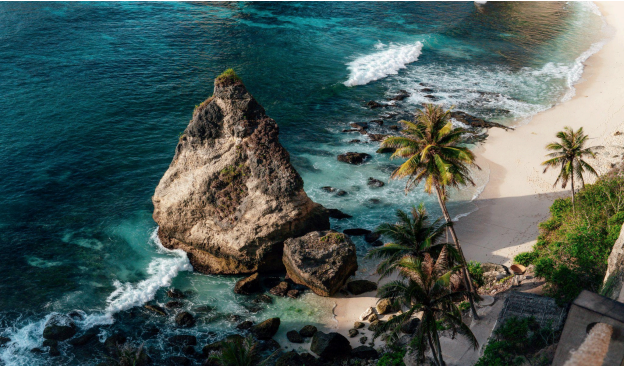25 June 2025
Buying Land in Bali Made Easy: 10 Steps to Secure Your Dream Property
4 Minutes Read
Bali has consistently attracted not just tourists looking for a tropical escape, but also property investors from both Indonesia and abroad who see its long-term potential. However, buying land here isn't as simple as picking your favorite beach spot. It requires a clear understanding of Indonesia’s legal framework, technical steps, and administrative processes.
But don’t worry, we’ll walk you through it step by step. Here's your complete guide to buying land in Bali with confidence:
1. Complete Research and Define Your Purpose
Start by asking yourself a simple question: What’s the goal of your land purchase? Is it for building a private villa, a rental property, or maybe for commercial development?
Gather reliable information from trusted sources and narrow down your preferred areas. Popular spots like Canggu, Seminyak, and Ubud are great for holiday rentals, while more peaceful areas might be better suited for personal living. Once your goal is clear, choosing the right location becomes much easier.
2. Choose a Trusted Agent and Legal Consultant
Once your purpose is set, partner up with a reputable local real estate agent and a certified notary or Pejabat Pembuat Akta Tanah (PPAT). They will help you navigate the buying process, from finding suitable land to ensuring the legal documents are in order. Choosing trustworthy professionals is crucial to protect your investment and avoid future disputes.
3. Try to Do Site Visits and Initial Negotiation
Moving on to the next step, try to visit some shortlisted areas that caught your attention when you did the research. This step is important to take a look at some important things such as road access, actual environment, and all the utilities. After looking around and you finally found a match, try to negotiate and sign a pre-contract agreement or Perjanjian Pengikatan Jual Beli (PPJB) usually with a 10-30% deposit to secure the land.
4. Due Diligence
Stepping up to next important thing, do the legal checking to ensure some of these conditions:
- Land certificate status: Freehold/Hak Milik or Right to Use/Hak Pakai;
- Zoning designation: residential, commercial, or tourism;
- Any disputes, unpaid taxes, or legal encumbrances;
- The availability of proper permits such as building permit or Izin Mendirikan Bangunan (IMB) and building eligibility certificate or Sertifikat Laik Fungsi (SLF) if a structure exists.
Usually, due diligence typically takes 2–4 weeks, but for larger projects it may stretch up to 6 months.
5. Sign the Notarial Deed
Once the due diligence report is all clear, the next step is to sign the Akta Jual Beli (AJB) for freehold purchases, or the lease/sublease agreement for leasehold purchases—both must be done in the presence of a licensed notary. This agreement clearly sets out the agreed payment schedule, key deadlines, and all the relevant terms involved in the transaction. Double-check everything carefully before signing.
6. Understand the Taxes and Transaction Costs
Way to go! But remember, there is still something you need to keep your eyes on which is the taxes and transaction costs. This is important because you need to fulfill and obey these regulatory fees:
- Land and Building Acquisition Tax or BPHTB: 5%;
- Income Tax or PPh: 2,5% (typically paid by the land owner or leaseholder) ;
- Notary or PPAT fees: 1 - 2,5%;
- Land and Building Tax or PBB after the purchase.
- Additional fees related to preparing the land for construction, such as land measurement and soil testing, etc.
7. Finalize the Sales and Purchase Agreement Signing and Payment
After all the process, don’t forget to finalize the Sales and Purchase Agreement by making full payment. Here after, also do the final signing of this agreement in front of a respectful notary. Thus, it will mark the ownership transfer legally.
8. Register the Land with the BPN
The notary has to submit all your documents to the National Land Agency or Badan Pertanahan Nasional (BPN) to officially register the land under your name or your company’s name, such as PT PMA. Once they approve the documents, a new certificate will be granted under your name.
9. Apply for Building Permits and Review Zoning Rules
Apply for a Persetujuan Bangunan Gedung (PBG) and Sertifikat Laik Fungsi (SLF) after you earn the certificate. But before you decide to build something on the land, you need to understand the zoning usage first:
- Yellow Zone: residential use;
- Red Zone: commercial use;
- Pink Zone: tourism use.
Moreover, rental or tourist accommodation use will require a Pondok Wisata license beforehand. So, make sure to obey the zoning regulations.
10. Development Support and Tailored Recommendations
As a final step, think ahead about how you want to make the most of your investment. If you're planning to build on your land, feel free to reach out to us—Koskaki also offers services ranging from architectural design to construction supervision. And once your property is complete, we’d be happy to provide tailored recommendations to help you market or rent it out. Think of us as your one-stop solution for developing and maximizing your property in Bali.
So, Are You Ready to Own Your Own Land in Bali?
Owning land in Bali can be a winning investment for international buyers. But on the other hand, there are always essential legal regulations and administrations to be followed correctly. Therefore, by working with a professional parties like Koskaki, we will ensure:
- Full legal compliance
- Secure and risk-free ownership
- Smooth transitions from acquisition to development and beyond
Let’s work with Koskaki and we will pave your way through each steps with confidence and clarity as you build your dream property in Bali!





Share This Article to :